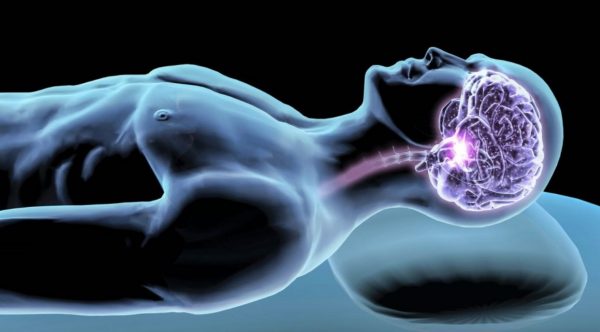Although the specific biological purpose of sleep is unknown, scientists know that it has an important link to proper brain function. New studies suggest that sleep disorders might also be indicative of the development of neurodegenerative disorders like Parkinson’s Disease.
At night, sleep stages cycle between two states—non-Rapid Eye Movement (REM) and REM. It is thought that dreams occur during REM and are accompanied by physiological changes that include increased brain activity, accelerated breathing, and muscle relaxation, and are achieved by nerve pathways that prevent muscle movement. However, if these neural networks are compromised, individuals may physically act out their dreams in a condition called REM sleep behaviour disorder (RBD). RBD is characterized by violent limb movements and, often, vocal expression during the night. However, it differs from sleepwalking, which is often brought upon by sleep deprivation and not associated with any psychological or psychiatric problems.
RBD’s association with neurodegenerative conditions classified as synuclein aggregation disorders, including Parkinson’s Disease, Lewy body dementia, and Multiple System Atrophy, has proven useful. Unlike many other neurological diseases, markers for these disorders are quite general; even with a positive diagnosis, it can be difficult to tell which patients will experience worsening conditions. Patients with RBD, however, almost always develop a synuclein-related neurological condition, which means the disorder acts as a strong predictor of disease onset.
In the largest study conducted to date on RBD, McGill researchers looked at 1,280 participants from 24 different countries. As opposed to most studies relating RBD and Parkinson’s which focus on only one research centre, this international study allowed for the study of the disease in different contexts.
“Parkinson’s is a serious disease,” Ronald Postuma, an associate professor in the Department of Neurology and Neurosurgery, said. “We don’t have any [preventative] treatment […for] Parkinson’s, but maybe that’s because we’re already too late [when we test them]. Maybe, if we could start testing treatments in these people really early, we could do something about it.”
Researchers tested patients for RBD using electrodes to assess physiological changes that occur during sleep. They were then assessed based on 21 baseline variables that included standardized motor testing, olfaction, vision, sleep characteristics and disorders, and physiological functions. During follow-up evaluations, patients were observed for changes in these variables, which allowed researchers to determine the predictive value of each factor in the development of Parkinson’s or dementia.
The researchers found that, in 73.5 per cent of participants, RBD progressed to a neurodegenerative condition. Among the baseline variables, irregular motor abilities were most strongly associated with the progression rate of Parkinson’s. Other significant variables in RBD-patients included decreased sense of smell, mild cognitive impairment, erectile dysfunction, abnormal colour vision, constipation, and loss of muscle relaxation during REM sleep.
“There aren’t any clinical trials yet trying to prevent Parkinson’s Disease,” Postuma said. “But, that’s what we’re actively trying to get going.”
Currently, while there is no cure for Parkinson’s, these discoveries will ultimately aid physicians in the selection of patients for preventative drugs undergoing clinical trials.
“No matter how you look, you see [progression from RBD to Parkinson’s],” Postuma said. “You can look at Japan, you can look at China […], you can look anywhere. And it’s not like it’s different. It’s the same across the world. You expect more variety in this […], and when you see that, it means it’s something really strong.”









I enjoy looking through an article that can make men and women think.
Also, many thanks for allowing me to comment!